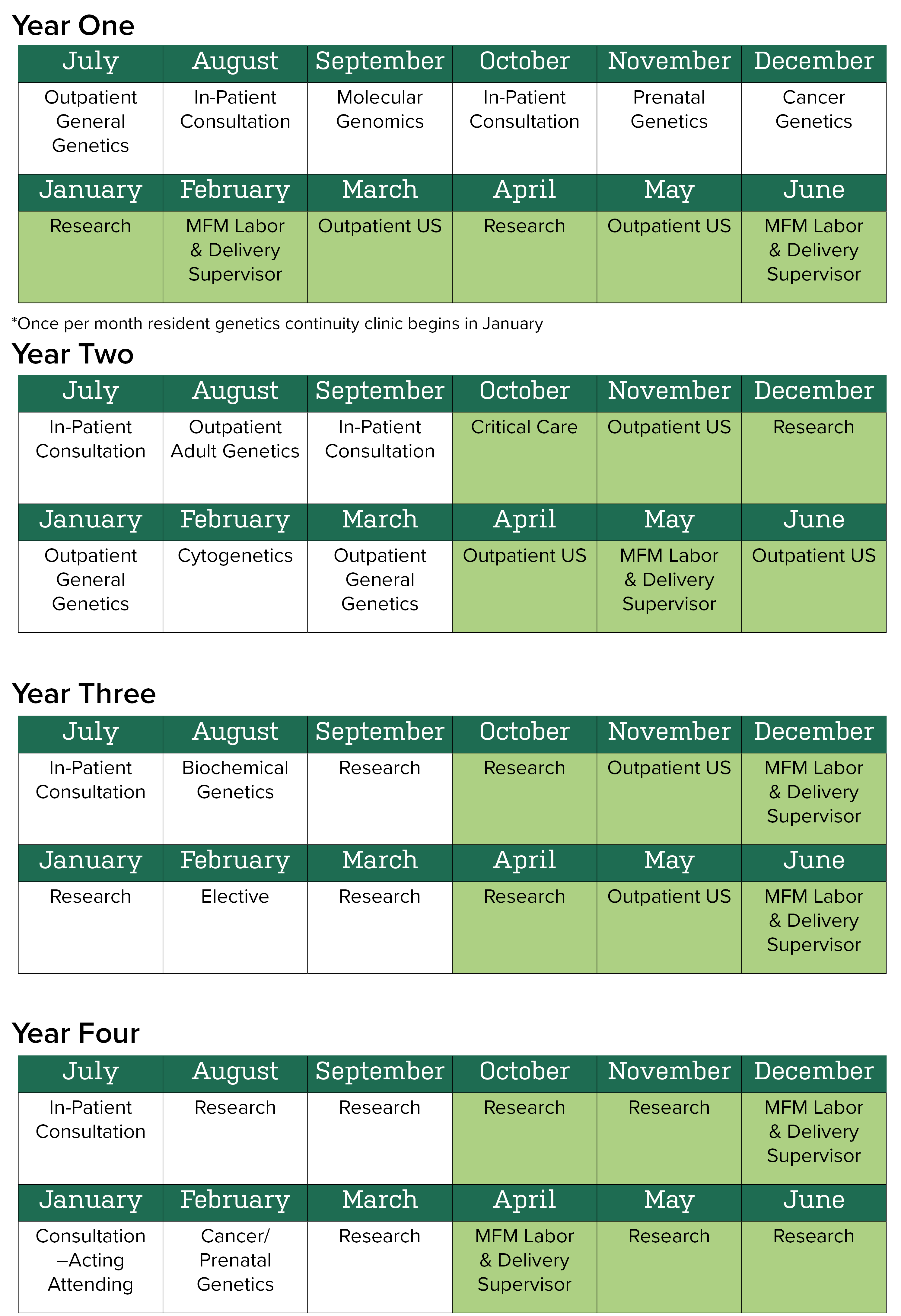Integrated Maternal Fetal Medicine-Medical Genetics
Overview
The Maternal Fetal Medicine-Genetics combined training program is a four-year program that is jointly administered by the Department of Genetics and the Division of Maternal-Fetal Medicine, Department of Obstetrics and Gynecology. After the program, the trainee is board eligible for both medical genetics and maternal-fetal medicine. Unlike the other combined training programs (Internal Medicine-Medical Genetics and Pediatrics-Medical Genetics), this program can be entered only after the completion of a residency in OB-GYN and is therefore part fellowship, part residency. For more information on the Medical Genetics training portion of the program, please see here.
The benefits of the Maternal-Fetal Medicine Medical Genetics program are many and include:
Enhanced clinical skills
The training provided through this program will enable the physician to provide more comprehensive care for the pregnant woman, her fetus, and then the child. All aspects of clinical care are enhanced by this combined training, beginning with prenatal genetic counseling, prenatal diagnosis and management of high-risk obstetrical conditions, delivery, and postpartum management. The maternal-fetal medicine medical geneticist will be an expert in developing a differential diagnosis for the fetus with one or more anomalies and will have a greater understanding of the clinical consequences of each syndrome due to their exposure to these children in their genetics training. They will be expert in providing genetic counseling due to their increased familiarity with the clinical and genetic aspects of possible disorders, as well as the fact that they will have had specific training in the genetic counseling process. Furthermore, this person will be a resource for their colleagues for complex anomaly cases or those involving genetic risk questions.
Novel research questions
The combination of maternal-fetal medicine and medical genetics training will permit the physician to identify specific research questions that would not be recognized by someone with only one part of the training. Their familiarity with genetic principles and research techniques will allow them to look at questions in a different way compared to someone with only maternal-fetal medicine training.
Education
A maternal-fetal medicine medical geneticist will be a valuable educator. He or she will be able to provide genetics education to OB-GYN residents and fellows and mentor residents and fellows on research projects.
Application Eligibility
Completion of an accredited OB/GYN residency program and acceptance by both departments are prerequisites.
Application Process
Applicants interested in applying to the Combined MFM/Genetics Fellowship Program should apply through ERAS and specify their interest in the required personal statement. For more information applicants should contact Akila Subramaniam, M.D., fellowship director in the Division of Maternal Fetal Medicine. For questions regarding the Medical Genetics portion of the training please contact Anna Hurst, M.D. Applicants must provide the following information:
-
Curriculum vitae
-
Personal statement addressing training goals
-
Three letters of reference
Residency/Fellowship Schedule


Notes:
-
At the completion of the program, trainees will be board-eligible for both maternal-fetal medicine (MFM) and medical genetics.
-
There are three weeks of vacation each year.
-
Clinical: There are 15 months of clinical training in MFM and 18 months in clinical genetics.
-
During MFM rotations, the resident will have one half-day-per-month genetics follow-up clinic
-
Research: The 18 months of research will focus on a project that is relevant to both genetics and maternal-fetal medicine and must be jointly approved by both training program directors. Research month blocks may have < 10% clinical assignments (i.e., four half-day clinical assignments per month).